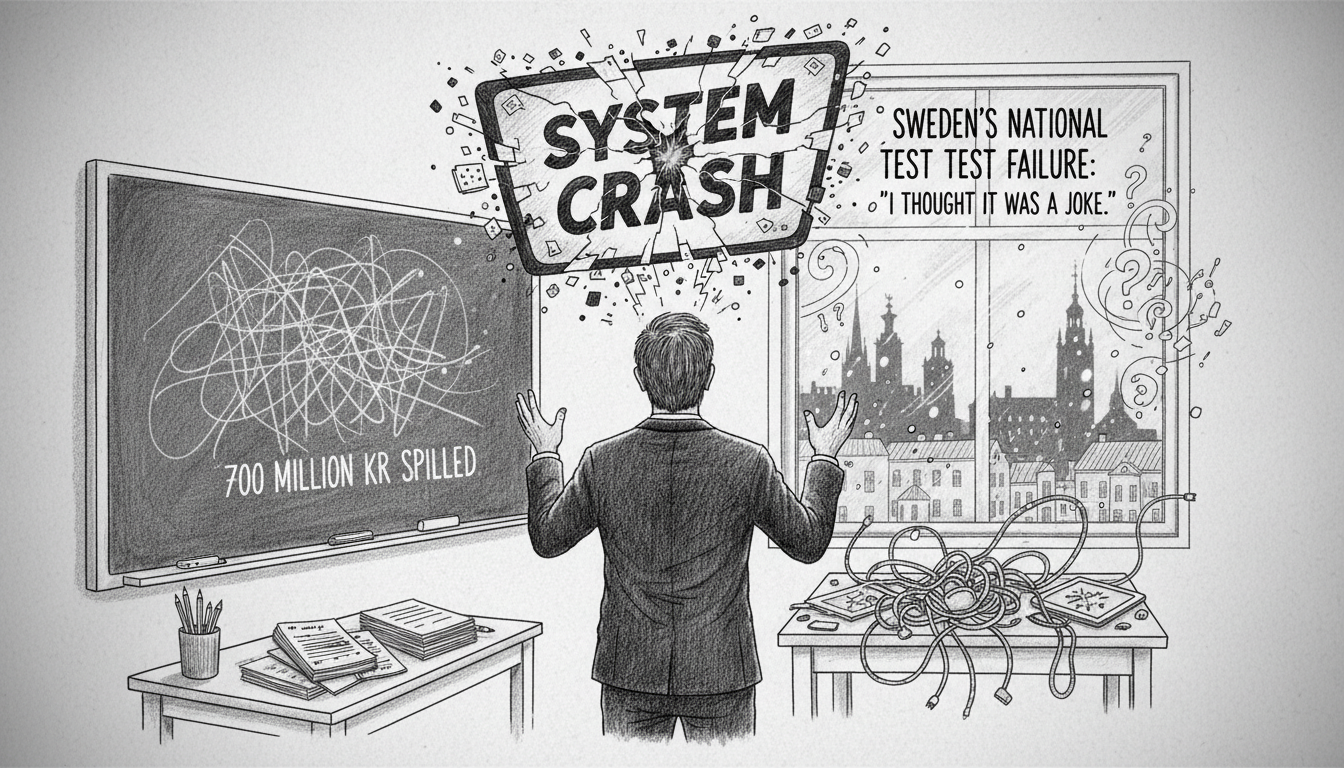Sweden's national digital testing system has collapsed for the second consecutive year, leaving students and teachers stranded during critical examination periods. The technical failure prevented most students from accessing the system entirely this year, while last year's trial run faced cancellation just two days before launch due to serious security breaches.
Ronny Söderqvist, a teacher directly affected by the breakdown, expressed his disbelief. 'I thought it was a joke when I saw what was happening,' he said. 'When I logged into the system, I could see student information from other schools.' The privacy violation raises serious concerns about data protection in Sweden's education technology infrastructure.
The financial implications are staggering. Taxpayers have already invested 700 million Swedish kronor into the failed system, equivalent to approximately $67 million USD. Despite this massive investment, no functional testing platform exists as schools approach another examination season.
'It's shameful,' Söderqvist stated bluntly. 'I fully expect we'll be using paper tests again this spring.' His prediction points to a complete system failure that forces schools to revert to traditional methods after years of digital transition efforts.
Schools made substantial preparations for the digital testing rollout. 'We attended multiple training sessions and upgraded our internet connections,' Söderqvist explained. 'These improvements cost real money that now appears wasted.' The failed implementation represents not just technical failure but substantial financial loss for educational institutions already operating with tight budgets.
This testing collapse reflects broader challenges in Sweden's digital transformation of public services. The country has invested heavily in becoming a leader in educational technology, but repeated system failures undermine this ambition. The pattern of technical problems across multiple years suggests deeper issues in project management and implementation.
Students and teachers face mounting frustration as the testing chaos disrupts educational planning. Examination results affect student progression and school evaluations, making reliable testing systems crucial for educational equity. The repeated failures particularly impact students in rural areas where educational resources are already limited.
Sweden's education authorities now face urgent questions about accountability and system redesign. With another testing season approaching rapidly, solutions must address both technical reliability and data security concerns. The situation demonstrates how digital ambitions can falter without proper infrastructure and testing protocols.
The testing failure comes as Sweden continues its push toward digital-first education strategies. International observers will watch closely how Swedish authorities respond to this challenge, as many countries face similar digital transition hurdles in their education systems.

